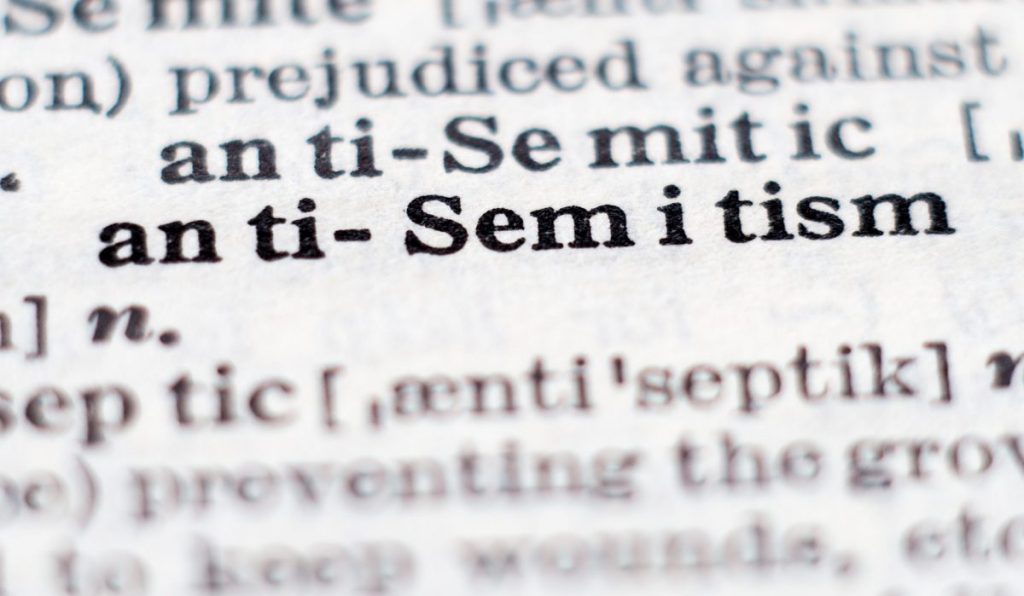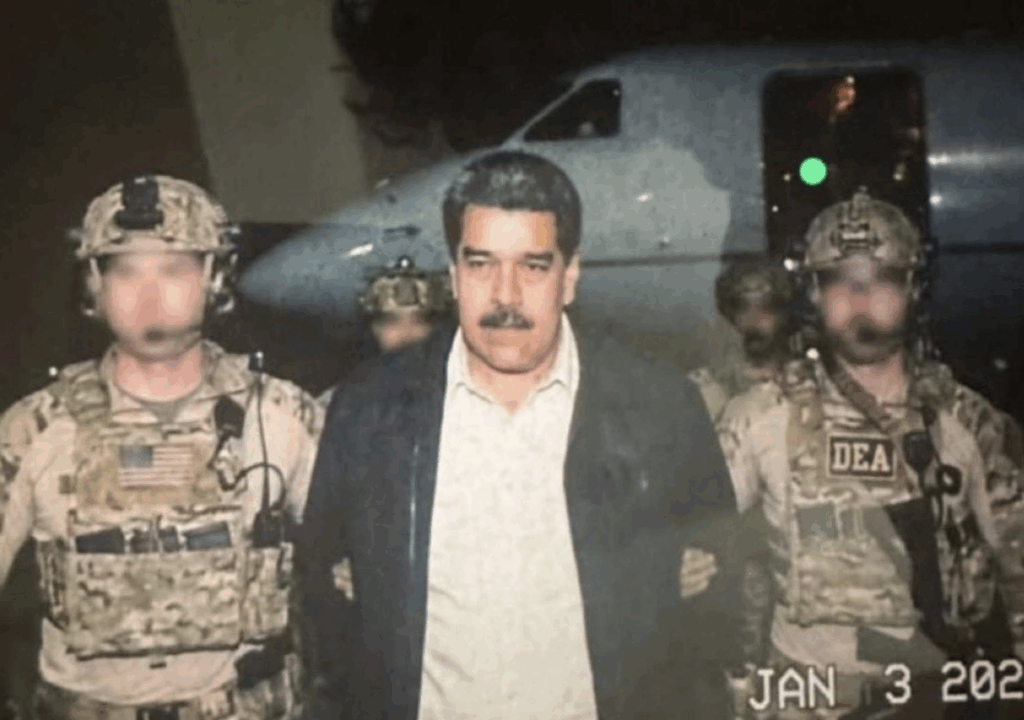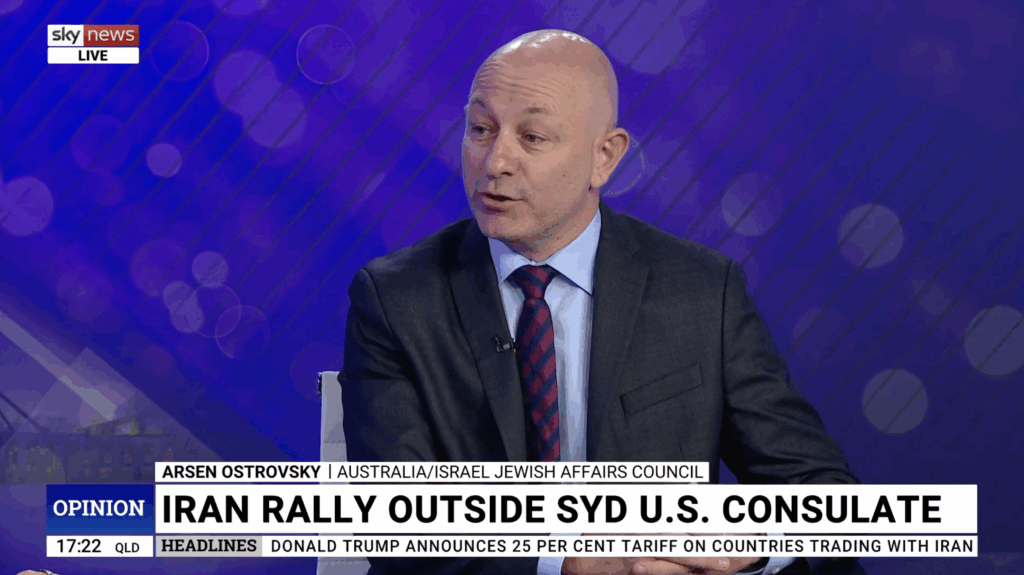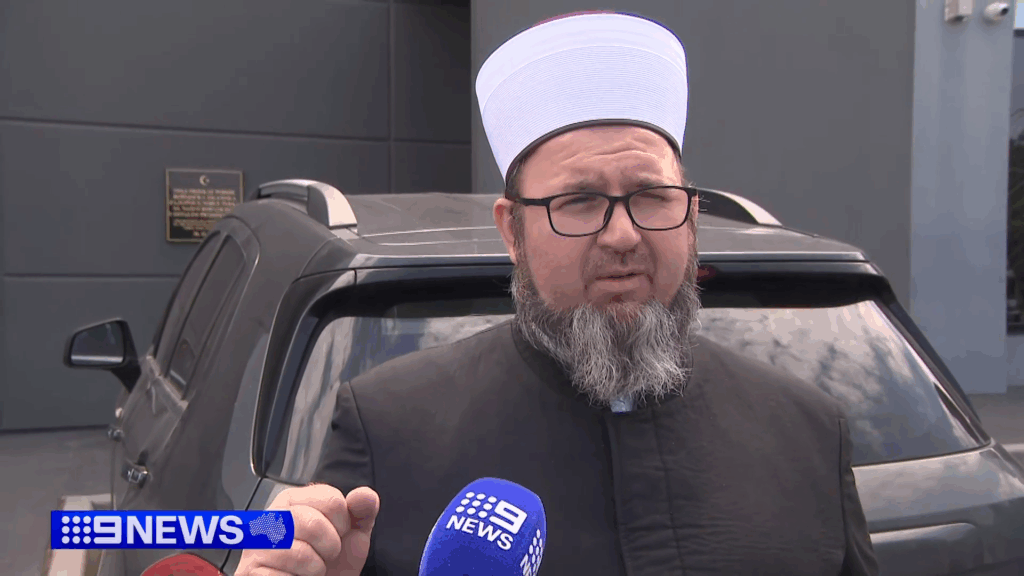IN THE MEDIA
Why appeasing Iran will lead to broader Mid-East war
July 10, 2024 | Colin Rubenstein

The Australian – 10 July 2024
The Israel Defence Forces are currently completing their highly targeted operations to dismantle Hamas’ last remaining battalions in the southern Gaza city of Rafah. However, 200 kilometres north, the low-intensity war between Israel and another Iranian terror proxy, Hezbollah, that’s been bubbling away for nearly nine months along Israel’s border, appears to be approaching a moment of decision.
Hezbollah boasts its attacks are part of a multi-front war against Israel’s existence, aided by Iran’s other proxies, including Yemen’s Houthi rebels and Iraq’s Kataib Hezbollah, as well as Hamas and Palestinian Islamic Jihad.
Approximately 70,000 Israelis living in communities close to the northern border were forced to quickly evacuate after October 7, and still cannot go home.
October 7 collapsed the Israeli security conceptzia that the country’s enemies could be deterred from initiating wars by demonstrating Israel’s superior firepower, and thus the build-up of ever more frightening military capabilities along Israel’s border could be tolerated.
Today, displaced northern Israelis have understandably sent Jerusalem an unequivocal message that there can be no return to the pre-war status quo – which included Hezbollah provocations right up to the internationally-recognised “Blue Line” in blatant violation of UN Security Council Resolution 1701 which ended the 2006 Israel-Hezbollah war.
Israelis cannot risk returning to their homes and fields with Hezbollah on the border surveilling their every move, looking to harass constantly, while planning its own October 7-style invasion.
And so, a large depopulated security zone has been carved out of Israel’s tiny territory by Iranian aggression – an untenable situation that no democracy could accept.
The US is seeking to broker an agreement to finally implement the broken promises of Resolution 1701, that would push Hezbollah’s forces north of the Litani River, some 20km from the border, though it’s hard to see how Hezbollah could be trusted to respect this agreement when they violated the last at the earliest opportunity, without consequences.
In the absence of such an enforceable and enduring withdrawal pact, however, an IDF ground offensive into southern Lebanon is almost inevitable. That said, Israeli military analysts estimate Hezbollah to be ten times more powerful, better trained and armed than Hamas.
Such a war would almost certainly see all of Israel’s home front and vital infrastructure rocked by unprecedentedly lethal air barrages, while the IDF would also sustain many casualties. Although Israeli’s antimissile defences are the world’s best, there are simply not enough interceptors to thwart an arsenal the size of Hezbollah’s.
Conversely, on the Lebanese side, the country’s infrastructure – already on the verge of collapse from decades of mismanagement – will likewise be in the crosshairs, especially since Hezbollah has turned numerous civilian villages into vast missile storage and launching sites.
In order to build pressure on Hezbollah to agree to withdraw, Israel has signalled it is ready for war if necessary, while the US has said it wouldn’t stand in Israel’s way. The rationale for this is that Hezbollah may choose to back down rather than risk losing its military assets and the fury of the Lebanese people.
However, if an even more devastating war than the current one in Gaza is to be avoided, a new policy toward Iran urgently must be part of the mix. Hezbollah is Iran’s most important and most formidable proxy. It is a vital cog in Iran’s theologically driven strategy of surrounding Israel with fanatical terrorist groups armed to the teeth with missiles and drones to cause Israel’s gradual collapse and destruction through a war of attrition.
The danger from Hezbollah, and the likelihood of war, cannot be addressed without factoring in the reality that Tehran currently feels emboldened and less constrained than ever. The Iranian regime sees the US Biden Administration as weak and having no real Iran policy at all, after its plans to restore the woefully inadequate 2015 JCPOA nuclear deal floundered in the face of Teheran’s rejection.
Although the Administration occasionally imposes sanctions on Iranian bad actors, it refuses to enforce the existing energy sanctions. The result is, sensing weakness, the Iranian regime is unlawfully selling vast amounts of oil while also illegally arming Russia in its war on Ukraine – and also rushing towards full nuclear weapons capability.
Avoiding a bloody war in Lebanon in the short term requires convincing Hezbollah – and by extension Iran – to accept a deal. Neutralising the Hezbollah threat in the longer term requires policies that weaken, not appease, the Iranian regime. Without such an approach, the chances of avoiding an Israel-Hezbollah war, or to even increase Middle East stability or move towards Israeli-Palestinian peace, appear slim.





